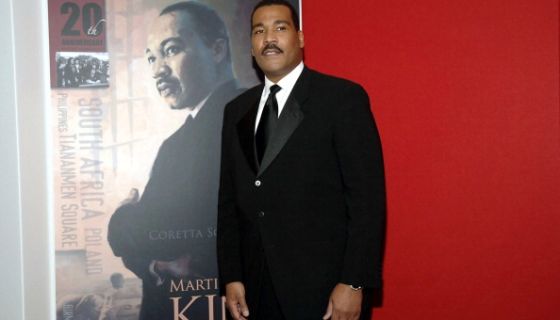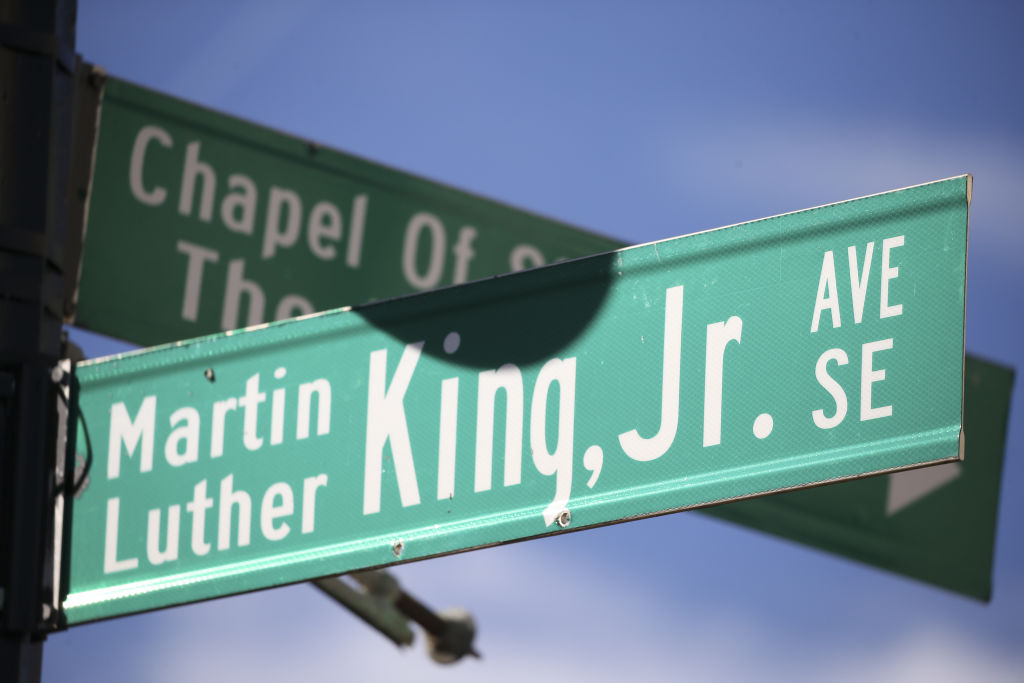
Source: Anadolu Agency / Getty
Although his most popular words are a symbol of tolerance and justice in race relations, Dr. Martin Luther King Jr.’s messaging and politics has been whitewashed in mass media and education as well. As opponents of ‘Critical Race Theory’ gain more popularity, it is as important as ever to share Dr. King’s radical ideologies before access to his words become threatened.
Dr. King advocated for peace, but peace cannot always be enacted peacefully, as it sometimes requires deconstruction of systems—which will in turn, force us to create new societies embedded with equity, not the corruption we are familiar with. Dr. King’s words do not always evoke the “hand-holding” imagery many associate him with today, but it is important to know the full-scope of the man who led the Civil Rights Movement. As we honor his legacy, we have a duty to remember it wholly, even if it is less palatable than the usual rhetoric you might associate him with.
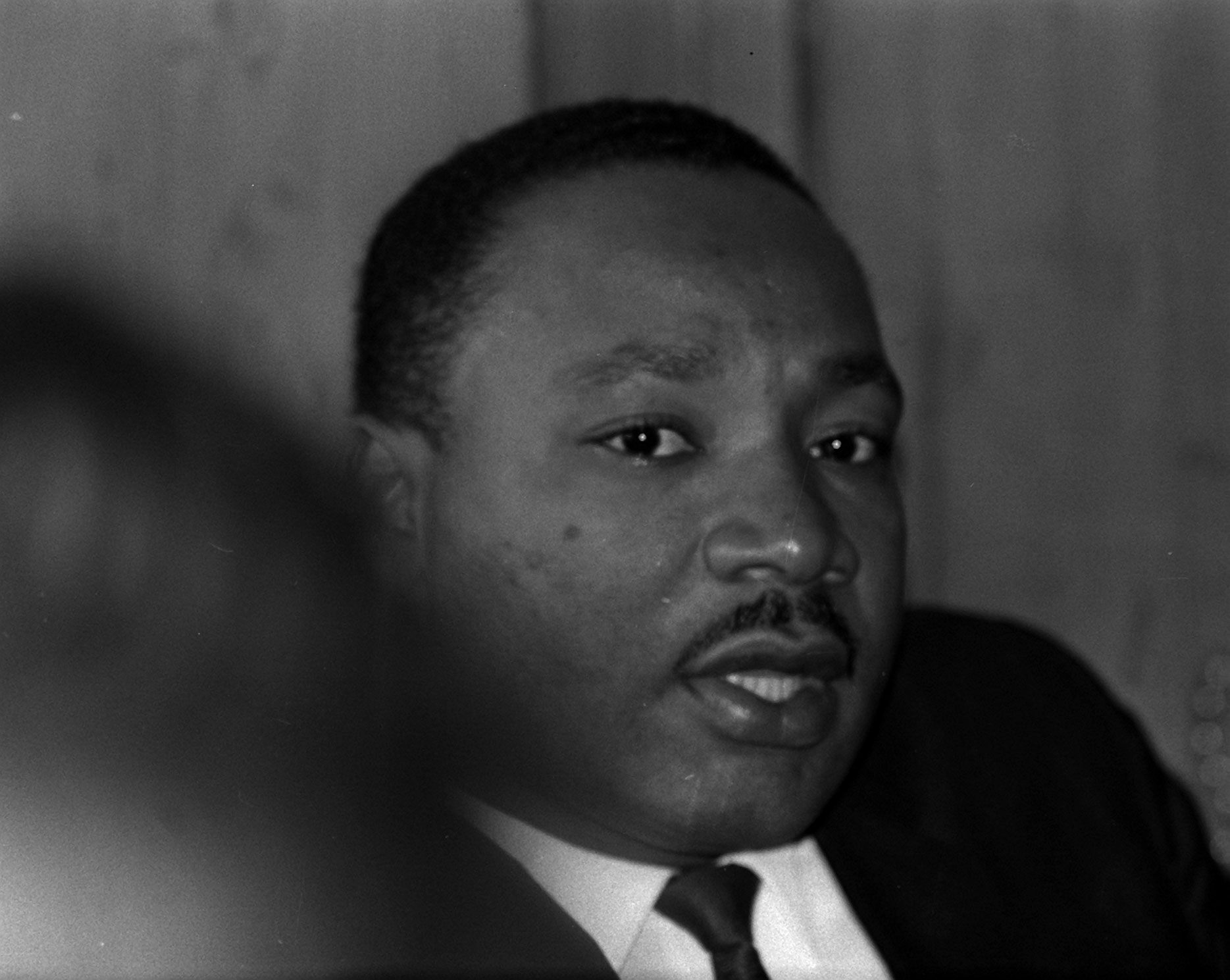
Source: Mirrorpix / Getty
“The problems of racial injustice and economic injustice cannot be solved without a radical redistribution of political and economic power.” –The Three Evils of Society, 1967
At the National Congress of New Politics, Dr.King pointed out the “three evils” of society, being “sickness of racism, excessive materialism and militarism.” Dr.King was well aware of the interconnectedness and pervasiveness of racism and classism in a capitalist, white supremacist world structure, and how it could never be dismantled without serious societal upheaval.
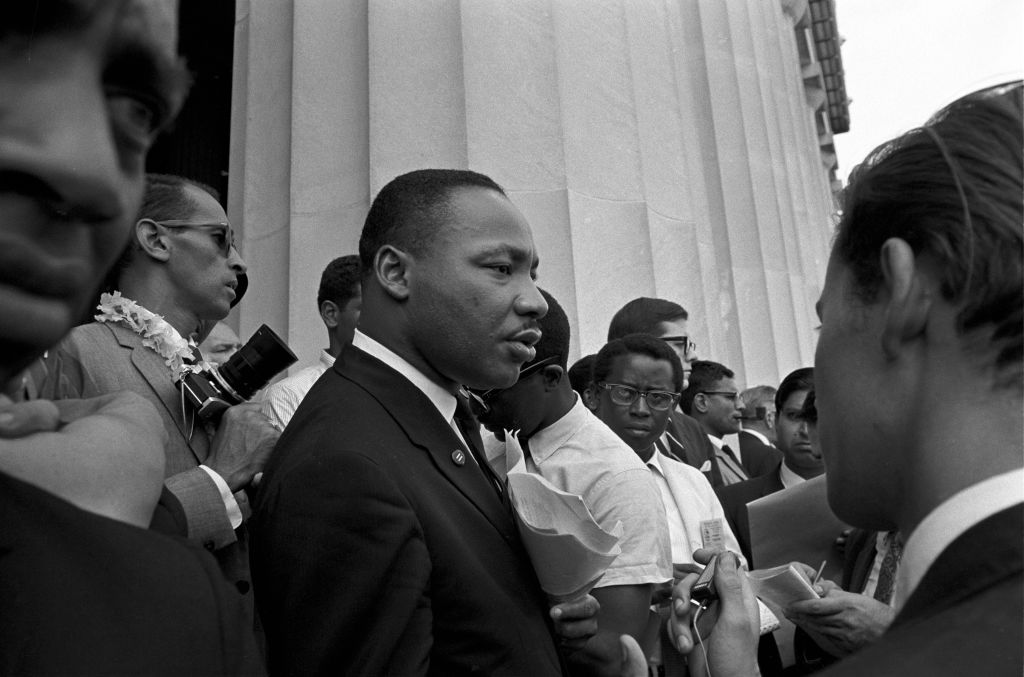
Source: Bob Parent / Getty
“I think that we’ve got to see that a riot is the language of the unheard. And, what is it that America has failed to hear? It has failed to hear that the economic plight of the Negro poor has worsened over the last few years.” –60 Minutes Interview, 1966
Dr.King’s interview with 60 Minutes shows that he was not the strict advocate for nonviolence as is promoted, as he refused to outright condemn rioters and understood the power of the tactic. Especially given how nonviolence does not always move those in power, protestors for change must resort to more provocative methods to gain momentum when the situation is dire.
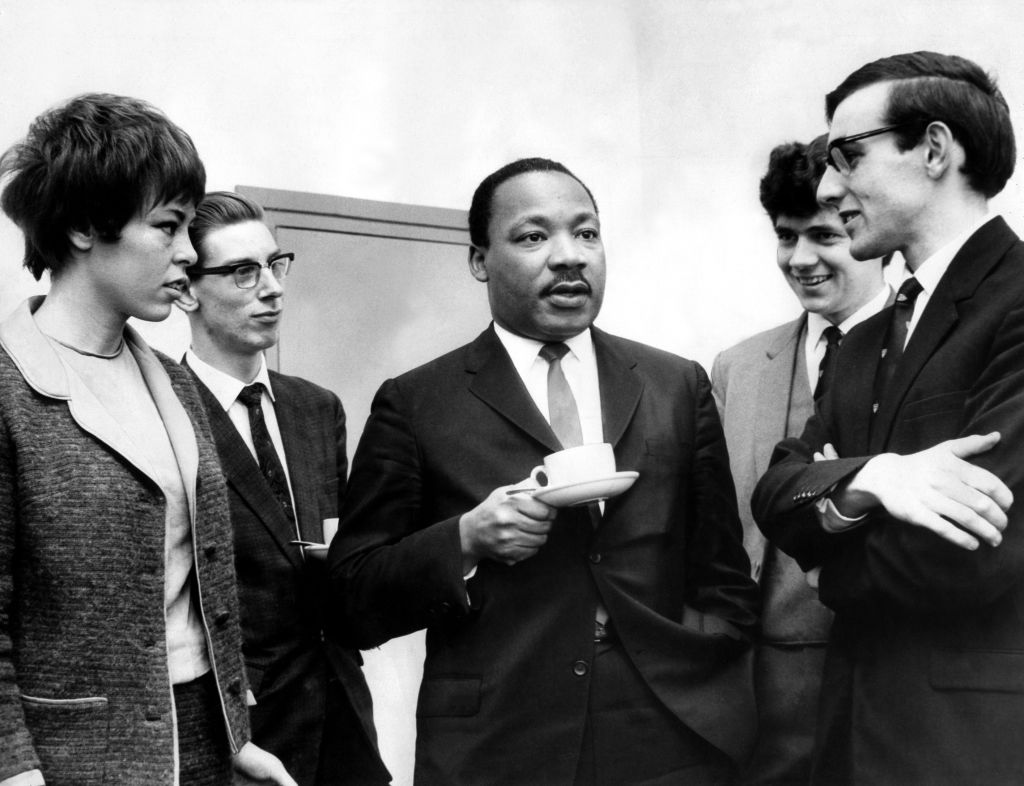
Source: Mirrorpix / Getty
“When machines and computers, profit motives and property rights are considered more important than people, the giant triplets of racism, extreme materialism and militarism are incapable of being conquered.” – Beyond Vietnam, 1967
Dr. King spoke again about the three ills of society, in relation to heightened resentment across America towards involvement in the Vietnam War. This speech, conducted at Riverside Church in New York City, shows his alignment with those, specifically Clergy and Laymen, concerned about the conflict.
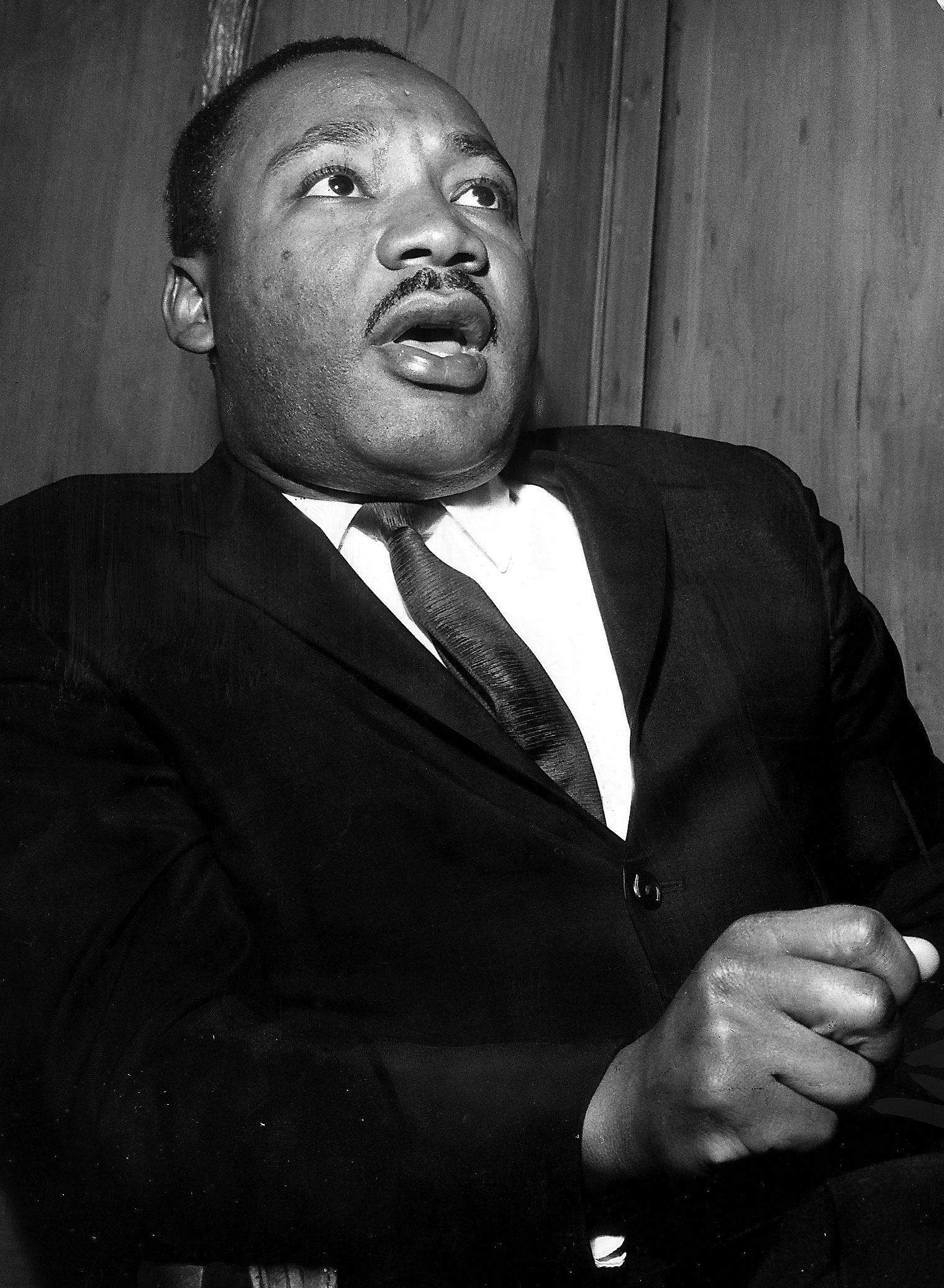
Source: Mirrorpix / Getty
“And the price that the United States must pay for the continued exploitation and oppression of the Negro and other minority groups, is the price of its own destruction.” –The American Dream, 1965
In his 4th of July speech, the Civil Rights Leader expressed concerns still surrounding the nation with the idea that America is but a dream itself, still not fully realized for the potential it could have. Furthermore, Dr. King states that America can never be the land of equality and democracy, as too much systemic failure and maltreatment has been done onto its most marginalized peoples for the nation to go forth as is.
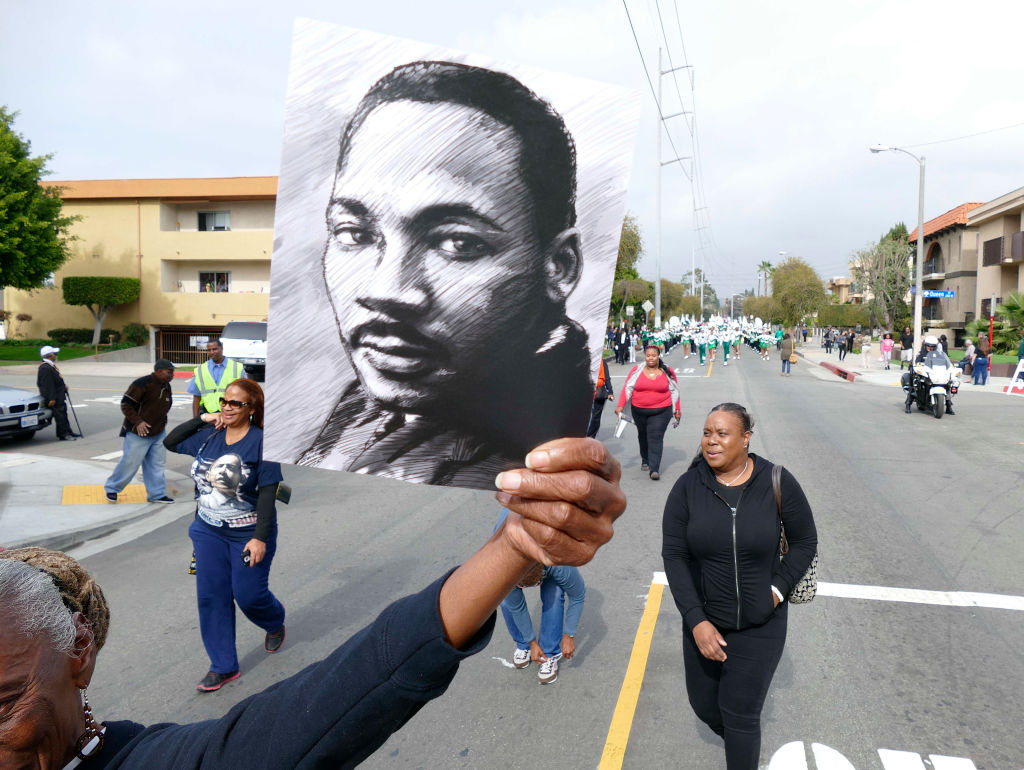
Source: MediaNews Group/Long Beach Press-Telegram via Getty Images / Getty
“I have almost reached the regrettable conclusion that the Negro’s great stumbling block in his stride toward freedom is not the White Citizen’s Counciler or the Ku Klux Klanner, but the white moderate, who is more devoted to ‘order’ than to justice; who prefers a negative peace which is the absence of tension to a positive peace which is the presence of justice…” –Letter From Birmingham Jail, 1963
In his famous letter while being under arrest, Dr. Martin Luther King Jr. responded to the clergy who urged him to choose a more palatable time to pursue justice and equality, to which King responds that their timing really is never to seek freedom at all.
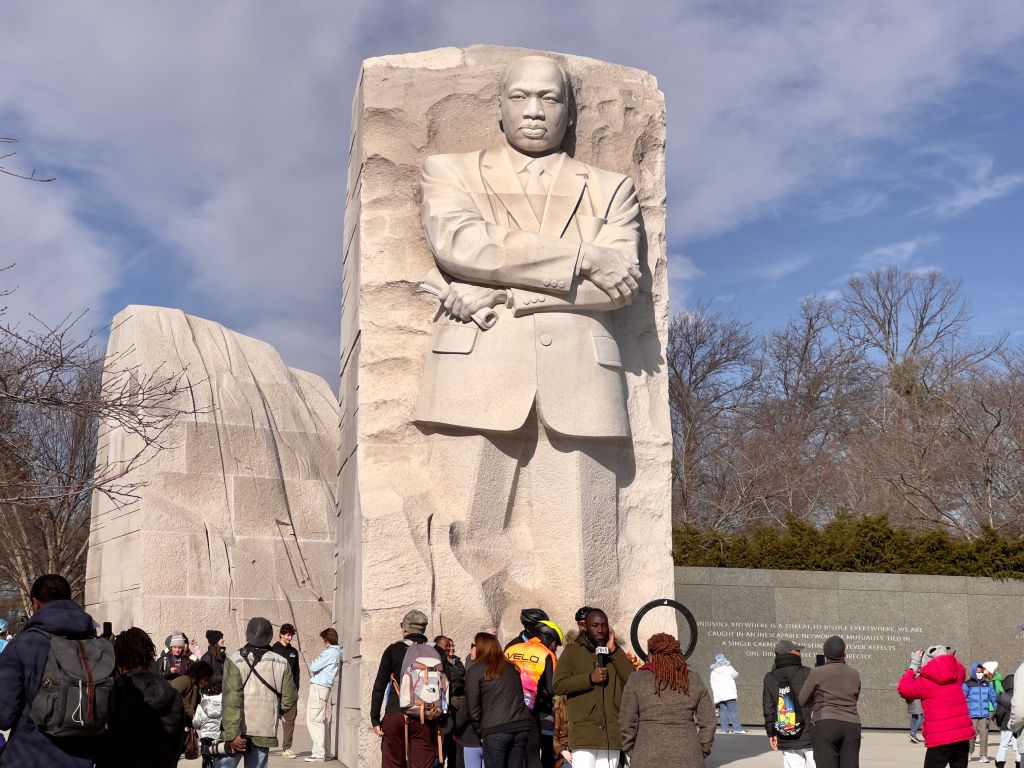
Source: DANIEL SLIM / Getty
A nation that continues year after year to spend more money on military defense than on programs of social uplift is approaching spiritual death.” –Beyond Vietnam, 1967
In his later years, Dr.King spoke on the correlations between American imperialism and its domestic racism, which came to a head at the peak of resistance towards the Vietnam war. He condemned the obscene military spending that could be better utilized to improve the social conditions of the people.
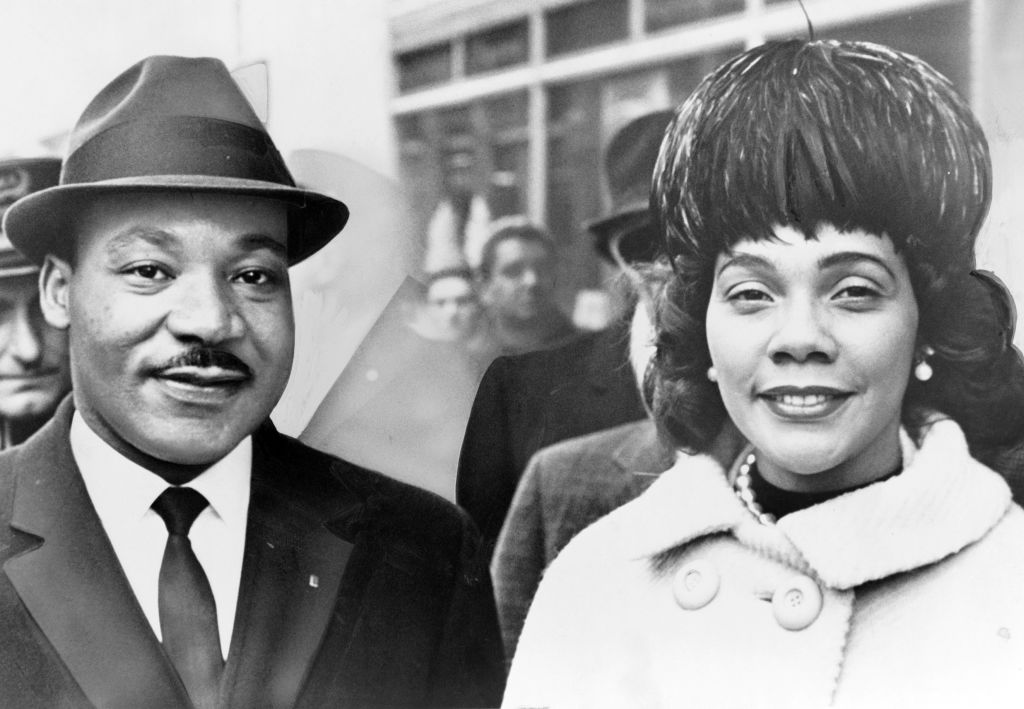
Source: Donaldson Collection / Getty
It is no longer a choice between violence and nonviolence in this world; it’s nonviolence or nonexistence. –I’ve Been To The Mountaintop (1968)
A day before his assassination, Dr. Martin Luther King Jr. addressed his people one final time in Memphis, to reiterate that the fight for freedom continues on, even if not in the same method of peaceful,nonviolent protest in which he once started. Their mission for racial and socioeconomic equity, with other social causes tied in, will always be worth the risk that comes with graver tactics to accomplish this vital purpose.

